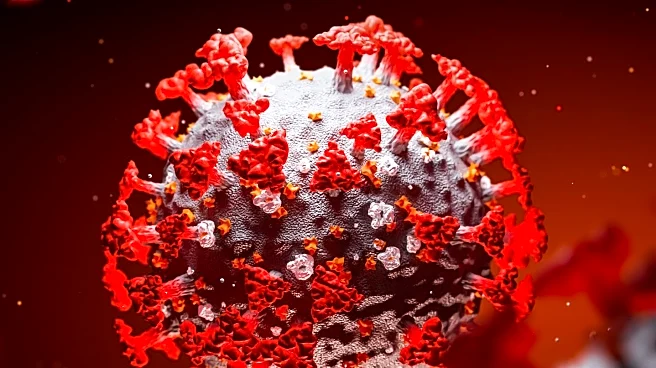What's Happening?
The World Health Organisation (WHO) has identified a new Covid variant, BA.3.2, as 'of interest' due to its resistance to antibodies. This variant has been detected across Europe and is being closely monitored by the WHO. The UK Health Security Agency reports that the most prevalent variants currently are XFG and NB.1.8.1, known as Stratus and Nimbus variants. The BA.3.2 variant poses a potential risk for transmission among vaccinated populations due to its ability to evade antibodies. The WHO is gathering data to assist vaccine producers in addressing these mutations, especially as infections are expected to rise during the winter months.
Why It's Important?
The emergence of the BA.3.2 variant highlights the ongoing challenge of Covid-19 mutations, which can impact vaccine efficacy and public health strategies. Variants that evade antibodies could lead to increased transmission rates, even among vaccinated individuals, necessitating adjustments in vaccine formulations and public health policies. This situation underscores the importance of continued genomic surveillance and vaccination efforts to protect vulnerable populations and manage the spread of the virus effectively.
What's Next?
The WHO's monitoring of the BA.3.2 variant will likely lead to updates in vaccine recommendations and public health guidelines. Vaccine producers may need to adapt their formulations to address the new variant's resistance to antibodies. Public health agencies might also revise strategies to mitigate transmission, including booster campaigns and targeted interventions for high-risk groups. The situation calls for international collaboration to ensure timely responses to emerging variants.
Beyond the Headlines
The development of variants like BA.3.2 raises ethical and logistical questions about global vaccine distribution and access. Ensuring equitable access to updated vaccines is crucial to prevent disparities in health outcomes. Additionally, the variant's resistance to antibodies may prompt further research into alternative therapeutic approaches and the development of next-generation vaccines.








